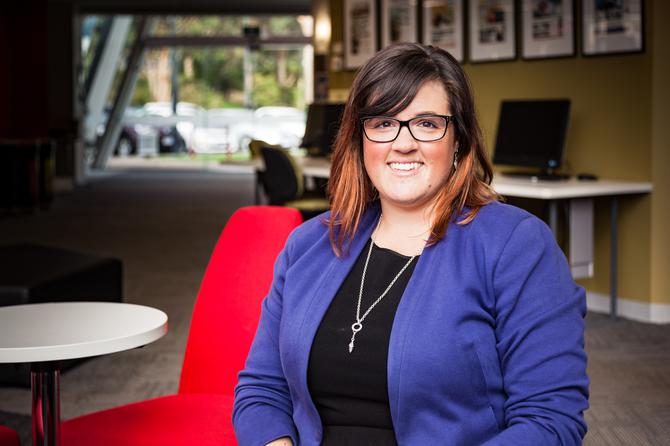Demographer Amina Keygan didn’t just enjoy studying Sociology, she fell in love with it, quite accidentally.
“When I came to University, I was very interested in gender and social structures, and how we become who we are as people and what shapes that. My course advisor suggested taking some units in the humanities.
“I then took all of the units in that range that I could, including social demography. I ended up having a career in it."
What made me fall in love with Sociology was the passion of my instructors and lecturers, as well as the importance of it as a study. Looking at how our society works, why it works, why people are the way they are, and how they become that way. It was really, really interesting to me.
Amina said while studying developing countries what really struck her was national inequality and social inequality.
“For me, understanding what causes that inequality is the first step in being able to affect change in that area. That was really what hooked me.
I’ve recently been invited to apply for a role as a population officer with the United Nations, located in their New York office. That would be the ultimate goal, to work for the UN in their population division. It’s just such a broad ranging policy, and that would be where I think I would be able to effect the most change.
Amina has her own private demographic practice, and is also part of the University’s Institute for the Study of Social Change. She has also previously worked for the Australian Bureau of Statistics.

“I ended up taking a unit in Sociology of population change because it was the only unit that fitted into my schedule at that time. I loved it!"
My time at the ABS was really valuable. I got some real world practical experience about how my studies at UTAS could apply out in the real world.
She’s often surprised at how little people know about demography.
“Demography is the study of population and population change. It can be human, animal or sub-populations within a broader population.
“A lot of people don’t know what a population researcher might do. It has such a broad range of applications, education, business, government planning, work force, labour markets, employment, aged care; it ranges across all of those areas and brings them all together to form a cohesive picture about what’s happening now and what might be happening in the future.
“It really allows you to drill into a society or population as far down as you want to go on an individual level.
“My main clients are local governments, councils, and big industries that are interested in aged work forces and population changes within local government areas and the state. This can affect things like the delivery of services, such as where schools need to go and how many students will go to those schools into the future.”
Amina is also in the last stages of a PhD. The aim of her research is to inform better policy to help men and women have the number of children that they want.
Research has found there is a gap between how many children people say they want and how many they end up having. That gap is a great area for policy intervention. Is it gender expectations, is it employment, or is it education?
“Women may not make those decisions singularly in a lot of instances so I thought, what is the part of the jigsaw we are leaving out of the conversation? And that was men.
“So I’m looking at what informs men’s intentions, and how those might change if they worked full time or become unemployed, and what impact that has on their decision to have children.”
The research found that the average Australian man intended to have two children, which was expected; what was more surprising was their slight preference for having daughters, not sons.
“If men have two daughters, they’re less likely to want sons. I thought there might be a gender preference for boys. That was interesting and surprising.”
Demography is really broad and varied and interesting. No project is exactly the same and I really like it that way.
Apply now to study a Bachelor of Arts.